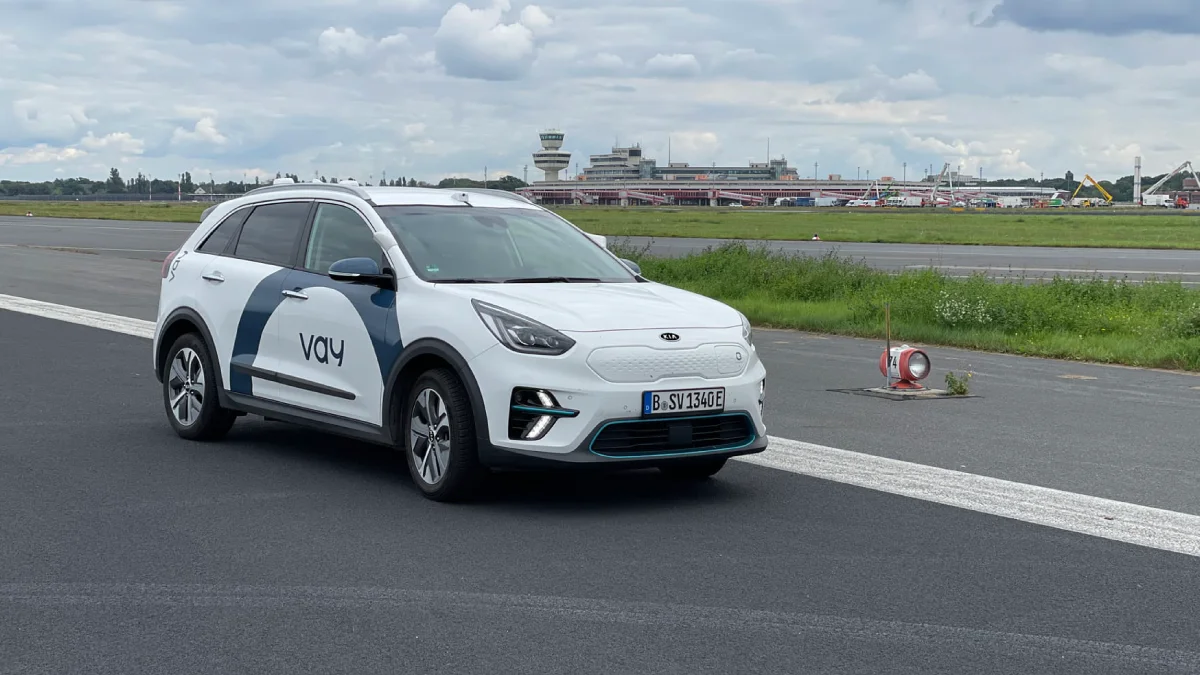Necessary Always Active
Necessary cookies are required to enable the basic features of this site, such as providing secure log-in or adjusting your consent preferences. These cookies do not store any personally identifiable data.
|
||||||
|
||||||
|
||||||
|

Vay, a German teledriving startup, is set to expand its operations in Europe. The company has announced plans to introduce Vay’s remote-controlled cars in Belgium. The startup will do this in partnership with Ush and Poppy.
Ush is a Belgian company that operates driverless vehicles. Poppy is the largest car-share provider in Benelux. The two partner companies are subsidiaries of D’leteren. The release of the remote-controlled cars awaits approval from Belgian authorities.
According to The Next Web, the three partners plan to start driving on roads in the country later this year.
Last year, Bloomberg reported that Vay was the first company to put driverless cars on Europe’s roads. Earlier this year, the teledriving startup released the first commercial mobility service in the US. After successful trials, teledriving will be used to boost efficiency. It will be used in maintenance, collection, and delivery.
Vays’ Chief Business Officer, Justin Spratt, said, “Teledriving is the missing piece of the puzzle for car-share business operators. We’re working with Poppy and Ush to unlock the full value that car-share needs to drive up efficiency and effectiveness for customers, and showcase how remote driving can increase profitability in a sector known for fine margins.”
The startup says it’ll double the time when vehicles are in use. If it succeeds in doing so, it will increase revenues.
By partnering with Poppy, Vay will install its driverless technology in over 2,000 company vehicles. Driverless systems expert, Ush, will help in maintaining Vay remote-controlled cars in Belgium. The company will be testing the fleet of driverless cars before they get on public roads.
Poppy’s CMO, Pierre de Schaetzen, said, “Vay’s best-in-class teledriving technology will help us increase efficiency, and improve the user experience for our car-sharing program. We’re excited to partner with them to get the most out of our fleet – and to provide our customers with exceptional service.”
Remote-controlled cars in Belgium will range from petrol-powered hatchbacks to electric vehicles. Tele-drivers will deliver the vehicles to customers’ doorsteps. Tele-drivers control the vehicles from a remote station. The stations have a steering wheel, driver’s seat, pedals, and monitors. The monitors give tele-drivers clear front and side views.
It’s possible to have operators sitting in different parts of the world. Operators of Vay remote-controlled cars work from the company’s teledriving centers.
Teledriving brings together autonomous vehicles and conventional cars. Autonomous vehicles are more difficult to put in place than it was first thought. Vay has demonstrated that its technology can lead the way to driverless cars.
In a past statement, Thomas von de Ohe, CEO at Vay, said, “Given recent challenges in the autonomy industry, automotive-grade teledriving can offer an alternative path to safe ‘driverless’ transportation, as a human driver is always in control.”
If Vay gets approval to introduce teledriving in Belgium, it will become the first startup to do so in Europe.